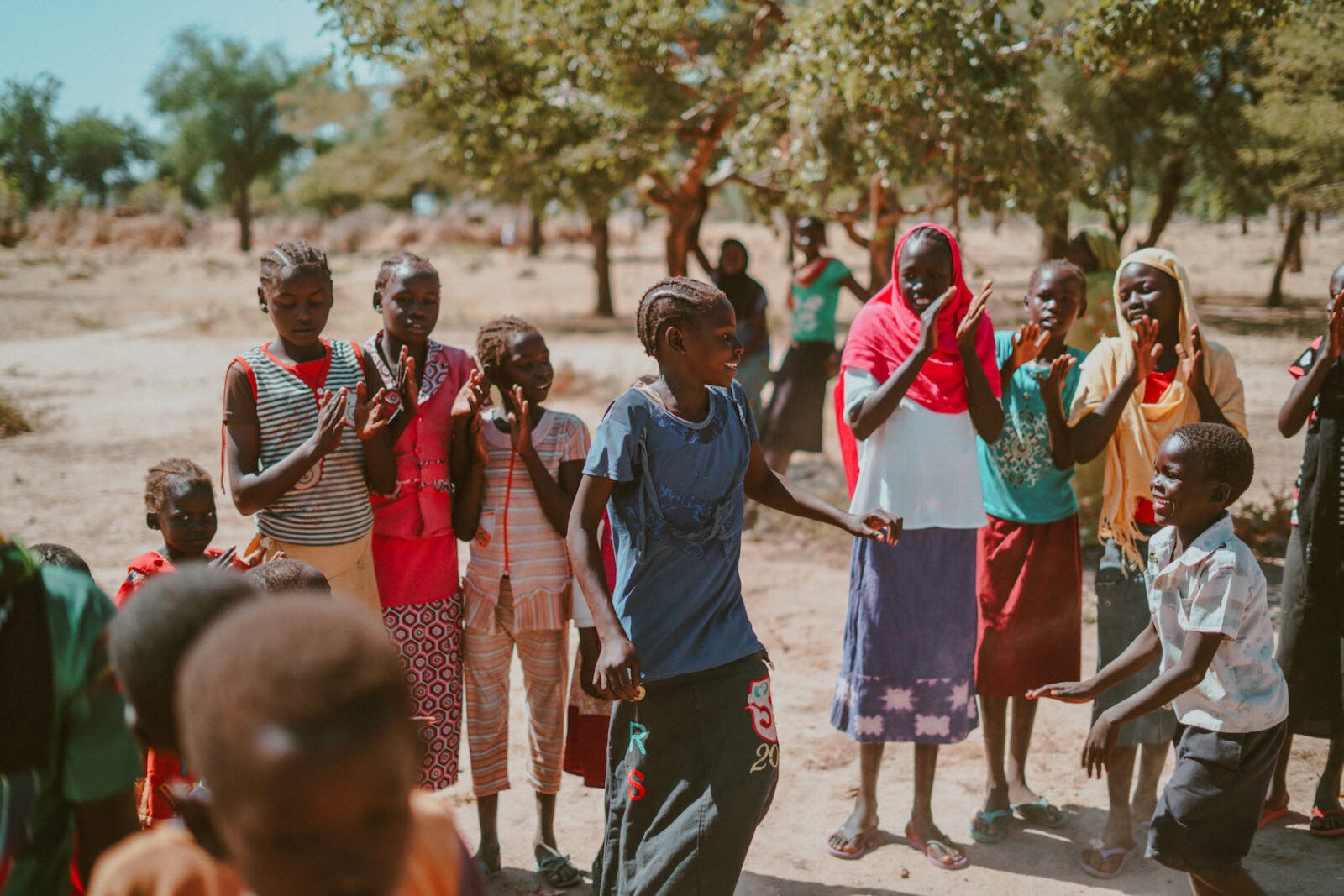
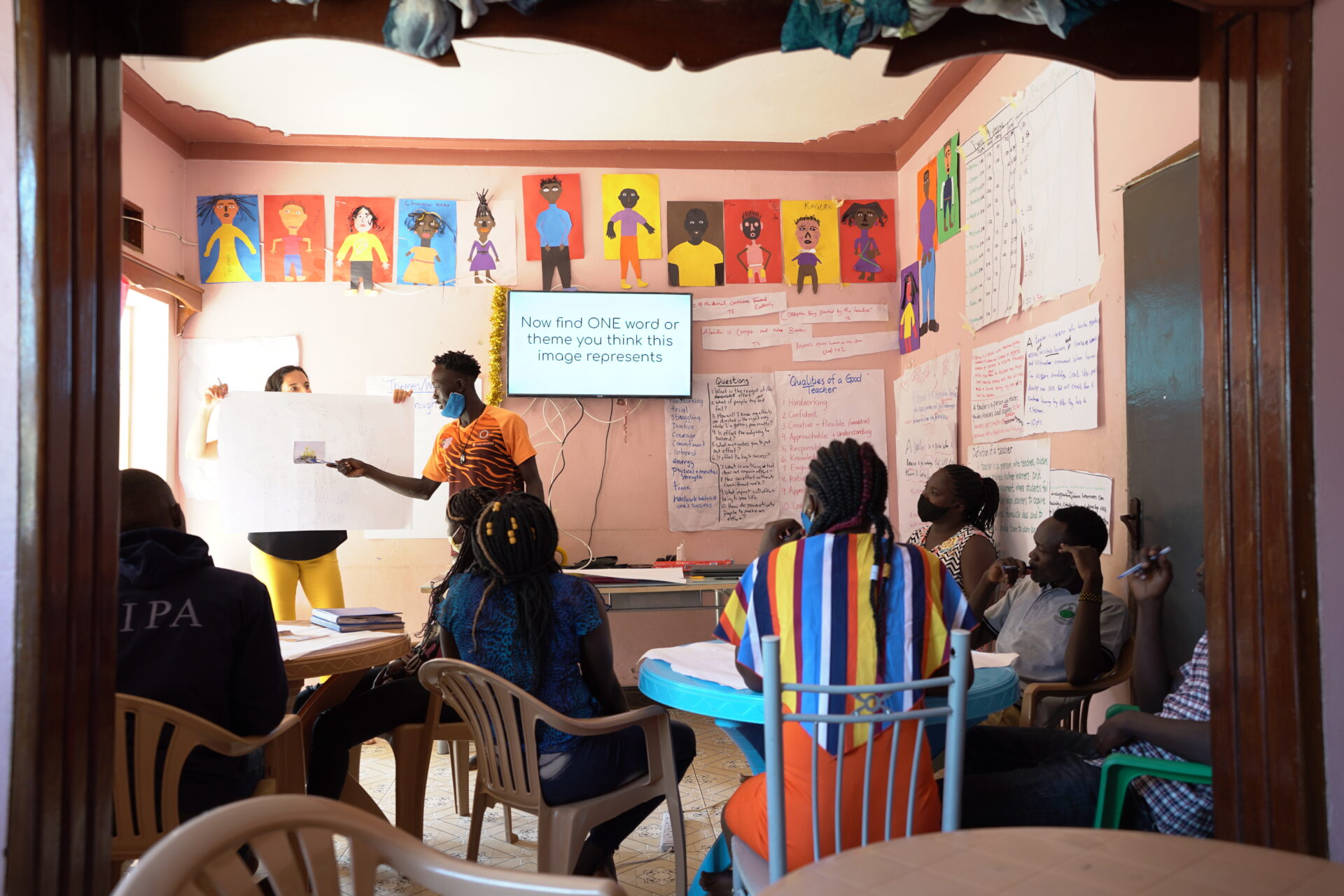
Teacher Training
During the war in Sudan, Ryan and Jazira worked with local leaders in Nuba to identify 25 high-achieving students to complete high school, far away from the bombing, in the country of Uganda. Upon high school completion, the students entered TMM’s teacher training college. TMM pulled together a team of high-quality, passionate teachers and Vanderbilt University professors to build a three-year teacher training program.
The courses within the program are rooted in sound research of best practices and culturally appropriate methods—our teacher trainers model and practice what we expect from a TMM college graduate. Most importantly, relationships and discipleship are at the heart of the teacher training program. We pray together, learn together and build each other up to develop teachers that will genuinely move mountains in the hearts and minds of the children in Sudan.
The original 25 students make up the first and second cohorts of the college. Both groups of teacher candidates will be the teachers in TMM’s first school, but it doesn’t cease there. TMM is continually working to evaluate and revise the teacher training program to train teachers all over Nuba and Sudan. The changes in the teachers’ lives and the lives of their students are a testament to the importance of this work. God has allowed us to accomplish so much through this program.
Curriculum Development
In conflict areas, education is often used to oppress and control people. That is also the case in Sudan, where education has been cited as one of the causes of conflict. TMM has put together a team of curriculum experts to work with the people of Sudan to develop a curriculum that meets their unique needs. We see our team as experts in the process of how to make a K-8 curriculum. The people of Sudan are the experts on the content’s who, what, where, and why. To date, the curriculum has included voices from community leaders, parents, teachers, students, women’s associations, and youth associations from over 46 tribes.
TMM and local education leaders facilitate activities that involve deep engagement on education topics primarily focused on three primary questions. What do the people of Sudan want their children to be like, know and do? These questions form the values, knowledge, and skills that will allow a child in the conflict areas of Sudan to thrive. Throughout the development process, constant communication ensures that people’s voice is prevalent. The curricular approach that the people have identified is an efficient use of education within their homes and communities to promote development and freedoms within their country.
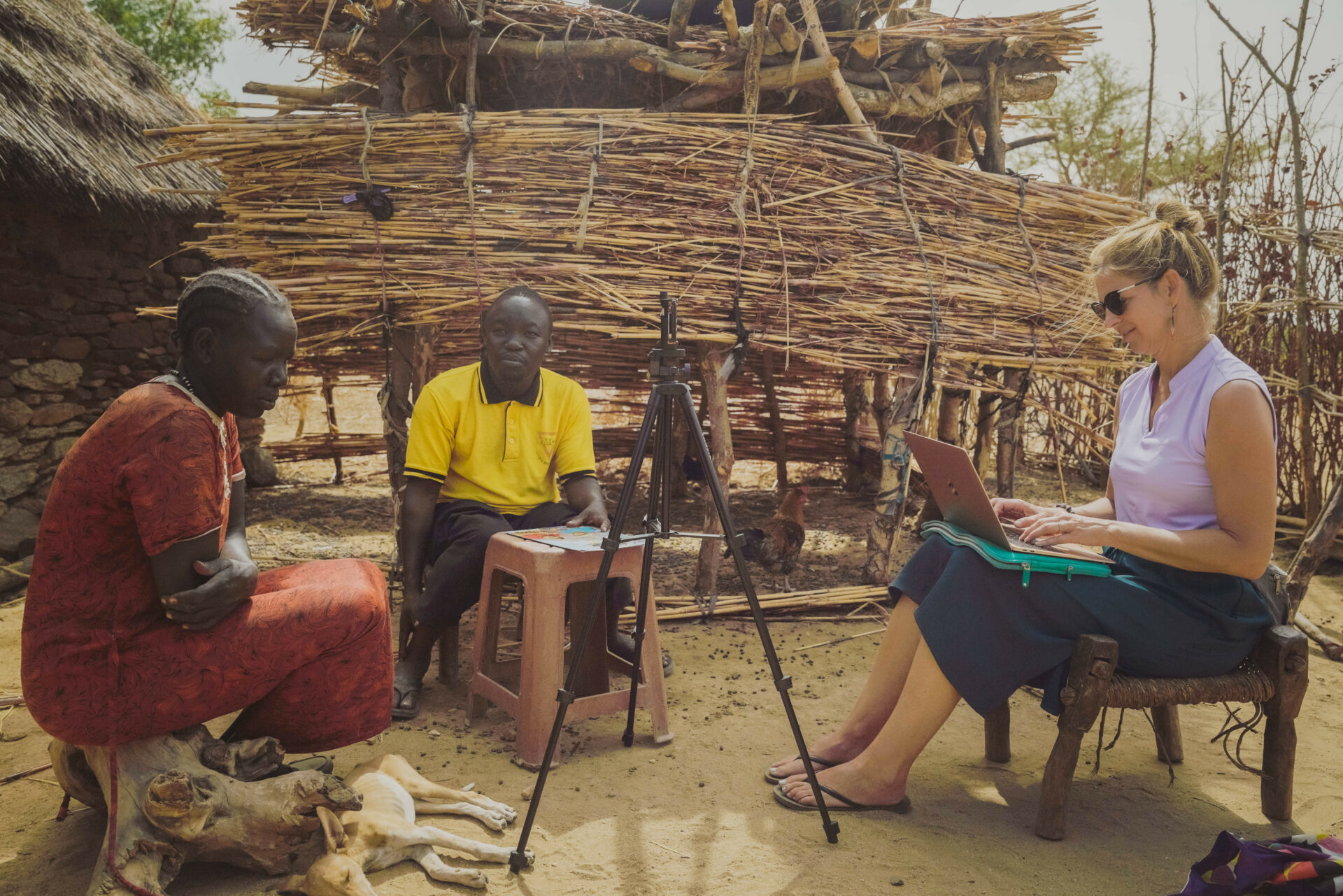
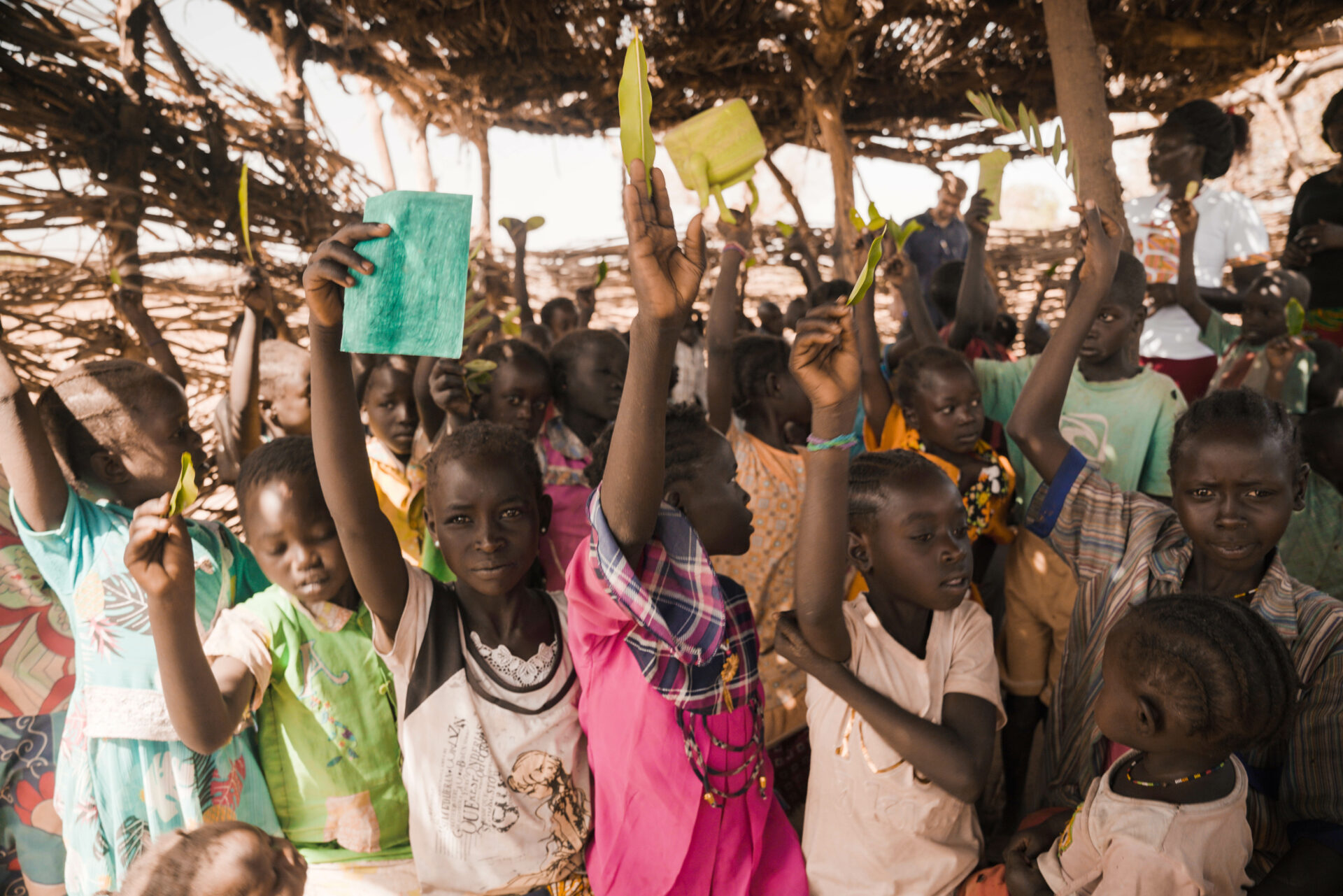
School Construction and Operation
Currently, TMM is in the 1st Phase of constructing our first primary school (K-8th grade). This school will serve approximately 700 students every year. With support from EMI, we have architectural drawings and structural blueprints of each building to ensure a well-thought-out plan for all future construction phases.
The school was designed to provide space for group and individual work for students and teachers with indoor and outdoor learning spaces for children. Each classroom will have ample natural light with little noise. In addition, each classroom will be engineered to allow a good flow of air, so the classrooms remain cool and ideal for learning. The design of the school will also support the community. Every roof will catch rainwater to be stored for use in the dry season. We will also take advantage of the surplus of the sun in Sudan by using solar power for the administrative block.
Our first school will act as a model in which we will bring new teacher candidates to observe and practice the new and innovative teaching methods and implementation of the new curriculum.
Ministry
TMM is a Christian organization; everything we do is because God saved us from our sins with a tremendous sacrifice, which was the ultimate show of love. In the same way, we try to do our best to emulate that love through sacrifice.
In the schools that TMM operates, we will have a separate chronological Bible teaching class that will be held before and after school. The Bible teaching will be voluntary and provided to students and all community members who wish to learn more about how the stories of the Bible lead to Christ. We desire to humbly share the love and salvation of Christ with the people we serve for everlasting life.
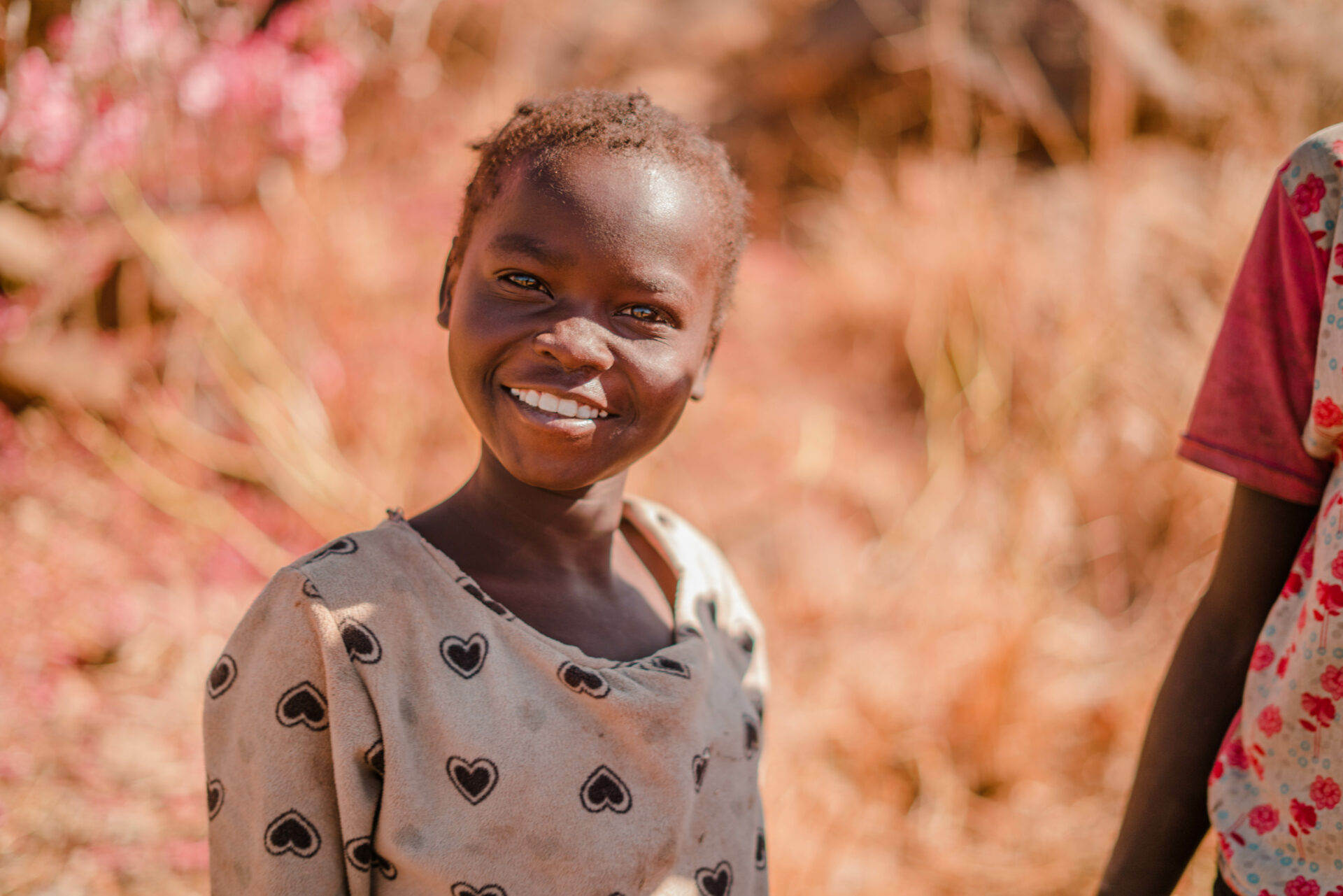
Make an impact.
Donate today to change lives
Together we can get started moving mountains and making change.
Children affected by conflict.
Schooling During Conflict
Globally, over 104 million children are living in areas of conflict. One in three of these children are out of school. School dropout rates in conflict areas are also very high. Two in five children living in countries of conflict will never complete primary school. (UNICEF)
High Illiteracy Rate
In addition to access, the quality of education is significantly affected for this population, and the effects are long term. Nearly 59 million young people aged between 15 and 24 years old living in countries affected by conflict or disaster are illiterate, triple the global rate.
Education in War Zones
Global statistics on education in conflict reflect Sudan's multiple war zones and, more specifically, the Nuba Mountains. Since colonial rule, the conflict has been ongoing, and the compounding lack of access to quality education reignites the fighting due to inequity.

